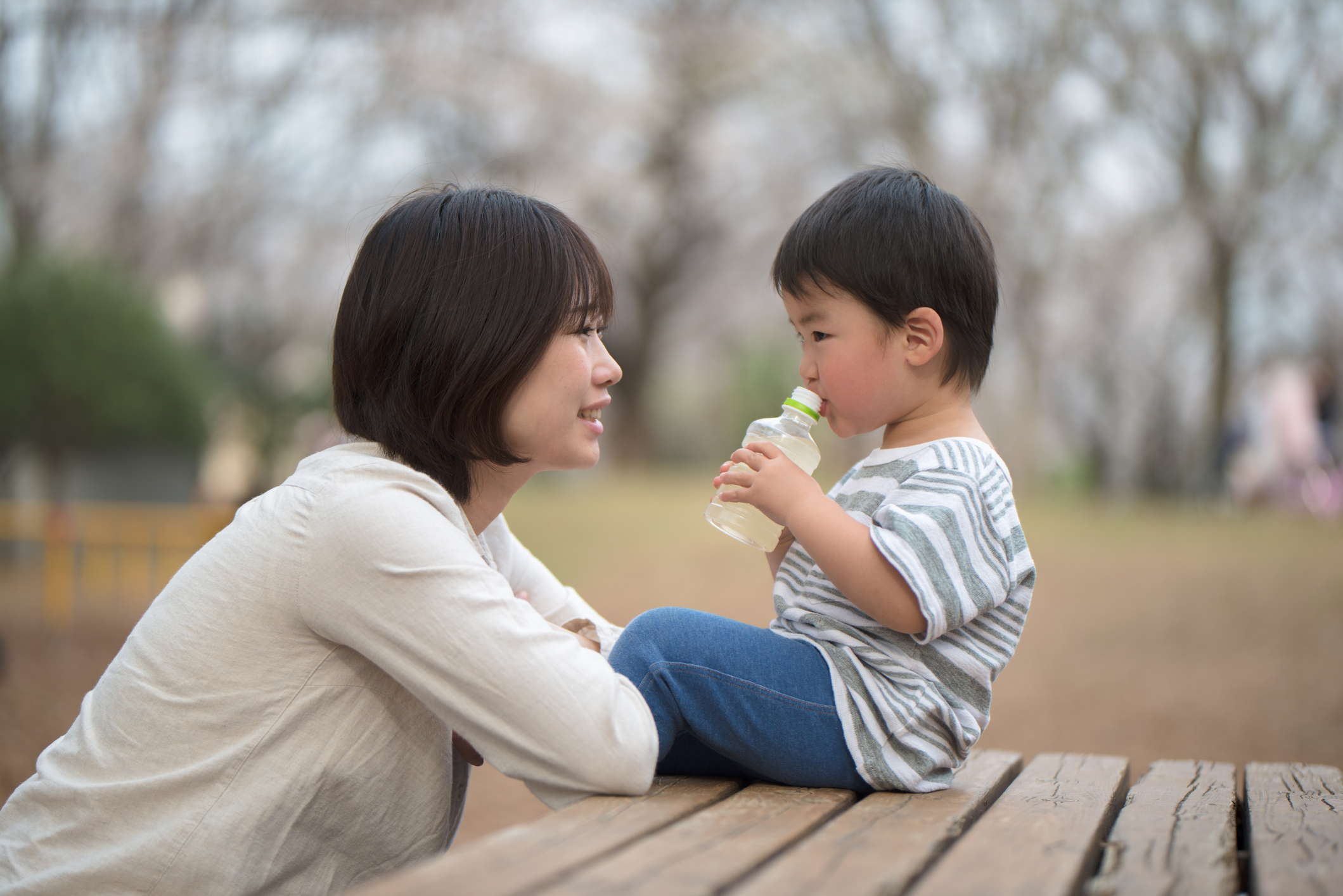Last week, while waiting to board a flight, we hung out in the kid zone area of the airport. Most of the structures were built for toddlers to climb through or crawl under, but there was one large climbing structure meant for older kids. My daughter, age 3, decided she was big enough to climb it. I hesitated at first but ultimately trusted her to make the decision for herself. As soon as she began jumping her way across it, I couldn’t help but repeatedly yell, “Be careful!” Eventually, she shouted back to me, “Be careful of what, Mom? Is something scary?” And I didn’t really know how to answer her.
Why are we constantly yelling for our kids to be careful while playing? Simply telling them to be careful doesn’t communicate the risks we perceive in their play—it only signals they should be fearful of something, sending the message that imperceptible danger is everywhere. Next time your kids are feeling extra adventurous, try these 5 other ways to say be careful instead.
Simply telling kids to be careful doesn’t communicate the risks we perceive in their play—it only signals they should be fearful of something, sending the message that imperceptible danger is everywhere. Click To Tweet1. Let them know you’re there to help.
Sometimes kids play outside their comfort zone. This type of play isn’t necessarily dangerous, but it might be something new or challenging for them. Instead of telling them to be careful, remind them you’re ready to help if needed. If embarrassment is an issue, use a code word that signals for help. Don’t wait for things to get tricky to chime in.
As soon as your child starts playing, say something like, “Hey, buddy, I am looking forward to watching you be adventurous today! If you need help, just say our super special code word in my direction, and I’ll come help you out!” Knowing they have a “spotter” while playing may even give kids a little confidence boost while trying something new!
2. Encourage them to take their time.
One time, my daughter and I were at the park, and she saw an older girl climbing a rock wall. She asked if she could give it a try, too. I agreed and she immediately tried climbing at the same speed as the older girl, causing her to lose her grip and almost fall backward. Kids learn to play by watching other kids. And often, when a child is trying a cool new trick, he or she is mimicking something somebody else did.
One of the other ways to say be careful is to encourage kids to take their time and go at a speed that is comfortable for them! Something I say to my daughter often is, “Before you can go fast, you must go slow. Show me your slow!”
3. Make observations with them.
It’s easy for us to spot potential danger while we watch our kids play, but it’s not quite the same for them. Instead of just telling your child to be careful, try making observations about their play by asking questions or making comments about what he or she is doing.
If he or she mentions leaping off the swing from high up, but you aren’t so sure it’s a good idea, try saying something like, “Wow, you’re swinging so high! Do you think you’re too high in the air to safely land on your feet right now? I don’t think I could do it from that high up.”
4. Use your words to nudge them in a direction of safety.
It’s not uncommon for kids to get into sticky situations during play. The next time your child is struggling to exit a risky endeavor, offer some clues as to what will help him or her reach safety. Something as simple as “It looks like using your left foot first may be easier for you!” will nudge your child in the right direction without making him or her feel like you’re jumping in to control the situation.
5. Ask them about their strategy to reach safety.
Kids love to show us their cool tricks. Sometimes, the “Hey Mom, watch this!” moves are harmless, but other times, they end with a trip to the ER. Before the show begins, ask what he or she plans to show you. If it’s something particularly risky, find out what the exit strategy is by asking something like, “Once you reach the top, how are you planning to get down from there?”
This will force your child to think a little harder about whatever adventure he or she has in mind. It will also give you the opportunity to suggest an alternative route.
In what situations do you find yourself yelling for your child to be careful? What are some other ways to say be careful?










